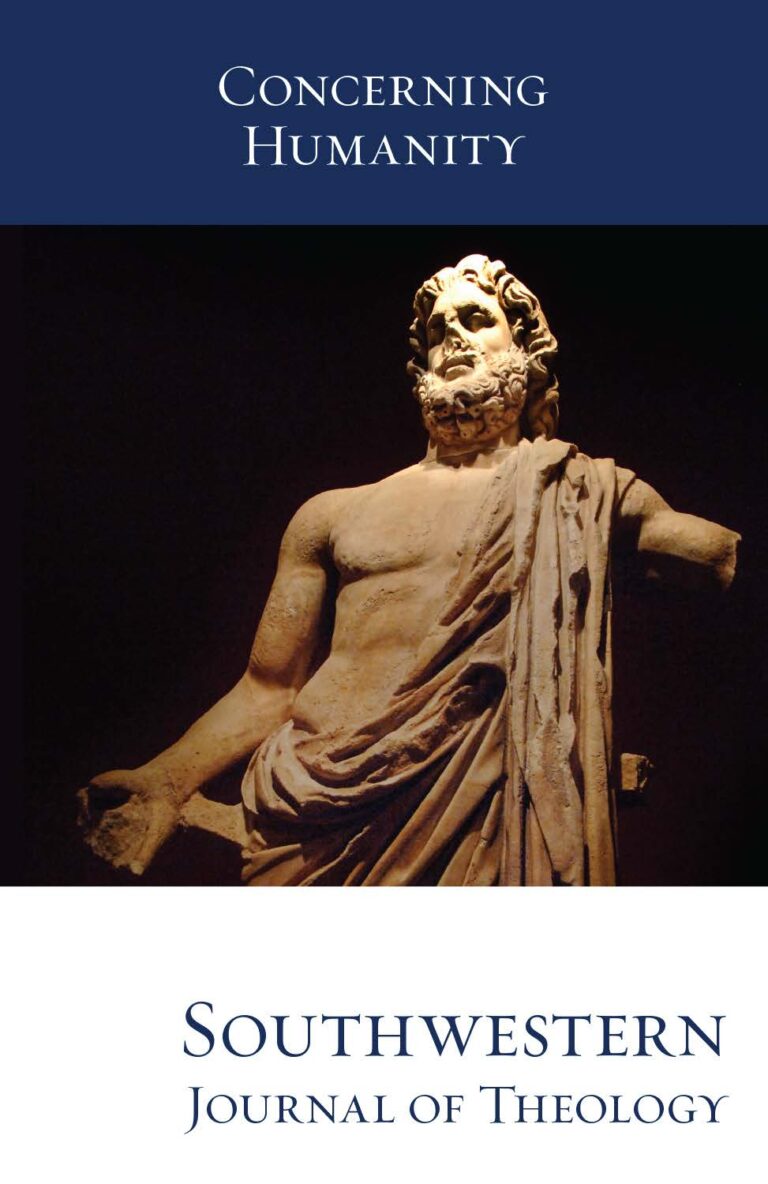
Concerning Humanity
Southwestern Journal of Theology
Volume 59, No. 1 – Fall 2016
Managing Editor: W. Madison Grace II
By John D. Wilsey. Downers Grove: IVP Academic, 2015. 262 pages. Paperback, $22.00.
I am by birth an American and by baptism a Christian. Before reading this book, I was fairly sure that the only possible reaction I could have to that combination was profound guilt for the way American civil religion has co-opted faith. John Wilsey believes that there is another way.
Wilsey distinguishes in this book between “closed” and “open” American exceptionalism. The closed version, which is what I grew up distrusting, “involves at least five theological themes imported from Protestant Christian theology and applied to America: (1) chosen nation, (2) divine commission, (3) innocence, (4) sacred land and (5) glory” (18). The open version “points to moral and civil example” and “leads to compassion, justice, and general human flourishing” (19).
The book outlines both of these ideas through American history. Wilsey begins with the roots of exceptionalism. Theologically, it came from Puritan ideas of covenant (God was specially calling Puritans as his “chosen people with a divinely ordained mission” [42]), typology (Puritans saw themselves as God’s new Israel and applied other scriptural imagery to the American experience), and millennialism (the idea that “history is progressing toward a Christian utopia, that God is using nations to bring about his kingdom on earth” [45]). Politically, it grew from the “Real Whig” ideology that stressed “religious toleration, liberty of the press, parliamentary supremacy, and rule by consent” (51) and a “Christian republicanism” that attempted to justify rebellion against England on biblical and theological grounds. Finally, American historiography up through the ninteenth century told of “a superior America serving the world as exemplar” (61).
According to Wilsey, this exceptionalism bifurcated in the ninteenth century into closed and open versions over the issues of slavery and manifest destiny. The closed version, which favored both those endeavors, centered on the idea that “God’s business was about establishing the supremacy of the Anglo American race in North America” (77). The open version, which Wilsey roots in Abraham Lincoln’s thought, exalted American commitments to justice, the rule of law, and democracy but argued that God’s providence only worked through American actions “insofar as the people were acting in accordance with God’s moral laws” (89). Justice was always right and American commitment to it was a moral good, but Americans were not always just and righteous in practice.
The book then turns to the five theological commitments Wilsey identifies as central to closed exceptionalism, explains how each of them has worked out in American history, and presents an open exceptionalist response. To the idea of America as a chosen nation (including the idea that Anglo-Saxons are the chosen people and nonwhites are not) he responds that being chosen “does not deny religious people their prophetic voice” (116); prophets should criticize problems in order to “set the nation on a more sure moral footing” (117). To the idea that America has a national mission he responds that “if America has a mission in the world, it is the same mission given to all people. . . . found in Micah 6:8,” i.e. to “do justice and to love kindness and to walk humbly with your God” (144). To the idea that America is an innocent nation he responds that “Christianity teaches that no one is innocent; all are guilty of unjust actions,” including nations. To the idea that American land is somehow special, he responds that all land is a gift from God for human flourishing and that American land is only sacred because “its land is part of the good creation of God” (190). Finally, to the idea that America is glorious (which he illustrates from a selection of homeschooling curricula) he argues that our understanding of history must allow for the realities of “change over time, context, causality, complexity, and contingency. . . . It is not appropriate to consider American exceptionalism—closed or open—as an essential aspect of the Christian worldview” (214). He ends with a plea that American Christians engage the public square committed to the ideas of “liberty, democracy, world peace, and cultural tolerance” (231), proud of their country but also able to see its flaws and missteps and work to correct them; never tempted to identify the country as sacred, but instead working to “differentiate the church from the nation while situating [it] within the national community” (222).
Wilsey’s grasp of American history is broad-ranging and his conclusions compelling. This is an important book at this particular moment. It is helpful in modeling to those of us who have been afraid to claim patriotism how a loving critique on Christian principles can co-exist with love for nation. I can only hope that it also reaches the over-patriotic audience I think Wilsey had more in his sights. He describes (through a perceptive analysis of W.E.B. Dubois) how closed exceptionalism can lead “well-meaning Christian people . . . to potential for wrong in the name of right. While the rock bottom of this progression was militant white supremacy, a key step was . . . the idea that America was always right and must be defended and justified at all costs” (229). That audience seems to be climbing in the polls. Read Wilsey’s book, and you will know why. You will also have the tools to point out another way.





